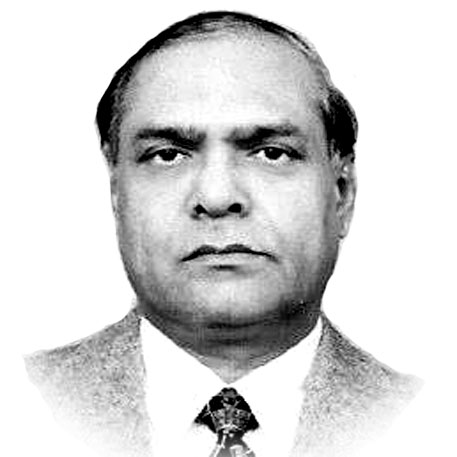Fighting multiple political and economic challenges
PTI came into power almost three years back with much funfair and on the popular slogans of ending injustice, poverty, corruption, carrying out economic reforms, pull the country out of economic malaise, improving education, medical and social equality and many more. But what has actually happened is before us.
Every person, particularly the poor, are under extreme pressure and finding very hard to meet both ends meet due to astronomical rise in the prices of items of daily use, particularly food items. Middle class is the hardest hit and salaried class is equally perturbed.
IK is himself a person of integrity but people are pointing fingers at his team which mainly comprises tried politicians with questionable track record who somehow or the other find their place in every government by switching their loyalty overnight.
Some of them have badly projected image of the country ( PIA pilots issue is one) and lack maturity and statesmanship in dealing with friends and foes.
True, these are rough and tough times under Covid-19 but here lies the test of calibre and class.
In addition, Pakistan cannot afford a big and enormous Cabinet of Ministers, Advisors and Special Assistants in view of colossal economic challenges, dwindling foreign exchange reserves, falling exports , rising debt and spiralling unemployment. Austerity is need of the hour and government must make it a top priority.
What we are hearing are only press statements and media pledges by cabinet members for making efforts to tackle the problems but the reality is different and opposite. Action and firm action is required as people have now become weary of promises.
People are also thinking twice about the form of government and system of governance as it has not benefited the common man but has made more millionaires and billionaires — a class of filthy rich who look down upon middle class and poor segments of society.
Thus there is an urgent need for selecting a system of government which works according to the basic principle of Democracy — Government of the people, by the people and for the people.
The four types of government: oligarchy, aristocracy, monarchy and democracy have been tried at different times in different countries with success and failures.
An oligarchy is when a society is ruled by a few people, usually the rich. An aristocracy is when a country is ruled by the upper class, or nobility.
A monarchy is when a society is ruled by a king or queen and a democracy is when a society is ruled by the people themselves or by representatives of the people and rule by a few people, usually the rich (as has been witnessed in majority of democratic countries).
Aristocracy, oligarchy, monarchy and democracy are old concepts of government which can be traced back to ancient Greece
. Aristocracy is “rule by the best,” and the concept comes from Plato’s Republic. Plato argued for an aristocracy of philosopher kings. He thought that philosophers were ideally suited to political leadership.
Historically, aristocracies have been based on wealth or land ownership. But other criteria have been used throughout the ages. Monarchies have often flourished alongside aristocracies.
Both have been the targets of revolutionaries, as in the 18th century France. Monarchies are ruled by a king or queen. Throughout most of history, the monarchs’ powers were absolute.
Today, most are constitutional monarchs, and they serve as symbols of the State with few real powers. However, Saudi Arabia is an example of a country where the king still holds great power.
Oligarchy is “rule by the few,” and that often means the rich. Many people believe that the United States is now an oligarchy rather than a democracy.
Billionaires donate huge sums to candidates and are usually rewarded by the passage of favourable legislation. One way to combat this problem is by public financing of election campaigns.
Democracy is “rule by the people” themselves or through their representatives. Today, this is the dominant form of government in the West.
However, many believe that their representatives do not always act in the interests of the people they represent. Another problem with modern-day democracy is low voter turnout.
Is America an oligarchy? That was the conclusion of a 2014 study by two prominent US political scientists, who argued that the influence of economic elites and big business far outstrips that of ordinary citizens.
In their view, America is less a bastion of representative democracy than a nation trammelled by the desires of the hyper-wealthy. Others have suggested that their vision is too bleak.
But the outsize economic, social and political clout of the super-wealthy in America is beyond debate – and ripe for scrutiny.
The political clout of billionaires has soared since the Supreme Court’s 2010 Citizens United decision, which determined that election-spending regulations restrict the right of corporations to free speech.
Yet 77% of the country believes there should be limits on how much individuals and organizations can spend on political campaigns.
Most people are unhappy with the status quo, and do not think it’s fair that wealthier class is mostly able to make to the Senate and Congress.
Three richest individuals — Jeff Bezos, Bill Gates and Warren Buffet-own more than half of the people at the bottom.
Of the richest 100 billionaires, 98 percent are white, 86 percent are men and the average age is 70.
Of late Democracy, as a system of Government has come under criticism, particularly in the third world countries and is being increasingly associated with corruption.
Votes are bought and sold to attain majority in Parliament and form government to rule the country.
Those who spend millions to reach Assemblies make billions during the tenure of membership.
Corruption becomes rampant and those who indulge in this “business” go scot free.
—The writer is former DG (Emigration) and consultant ILO, IOM.










